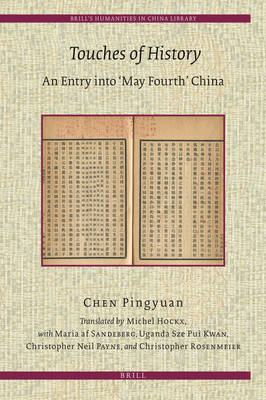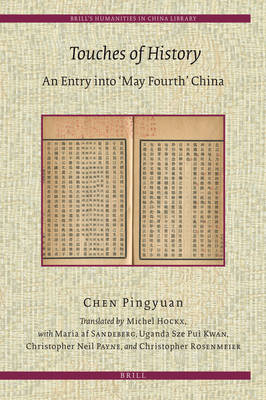
- Afhalen na 1 uur in een winkel met voorraad
- Gratis thuislevering in België vanaf € 30
- Ruim aanbod met 7 miljoen producten
- Afhalen na 1 uur in een winkel met voorraad
- Gratis thuislevering in België vanaf € 30
- Ruim aanbod met 7 miljoen producten
Zoeken
€ 291,45
+ 582 punten
Omschrijving
Touches of History represents a groundbreaking attempt to return to a study of "May Fourth" that is solidly grounded in historical fact. Favouring smaller stories over grand narratives, concentrating on unknown, marginal materials rather than familiar key documents, and highlighting "May Fourth"'s indebtedness to the cultural debates of the preceding late Qing period, Chen Pingyuan reconstructs part of the actual historical scenery, demonstrating the great variety of ideas expressed during those tumultuous decades.
Specificaties
Betrokkenen
- Auteur(s):
- Uitgeverij:
Inhoud
- Aantal bladzijden:
- 448
- Taal:
- Engels
- Reeks:
- Reeksnummer:
- nr. 2
Eigenschappen
- Productcode (EAN):
- 9789004157538
- Verschijningsdatum:
- 10/05/2011
- Uitvoering:
- Hardcover
- Formaat:
- Genaaid
- Afmetingen:
- 160 mm x 240 mm
- Gewicht:
- 843 g

Alleen bij Standaard Boekhandel
+ 582 punten op je klantenkaart van Standaard Boekhandel
Beoordelingen
We publiceren alleen reviews die voldoen aan de voorwaarden voor reviews. Bekijk onze voorwaarden voor reviews.








